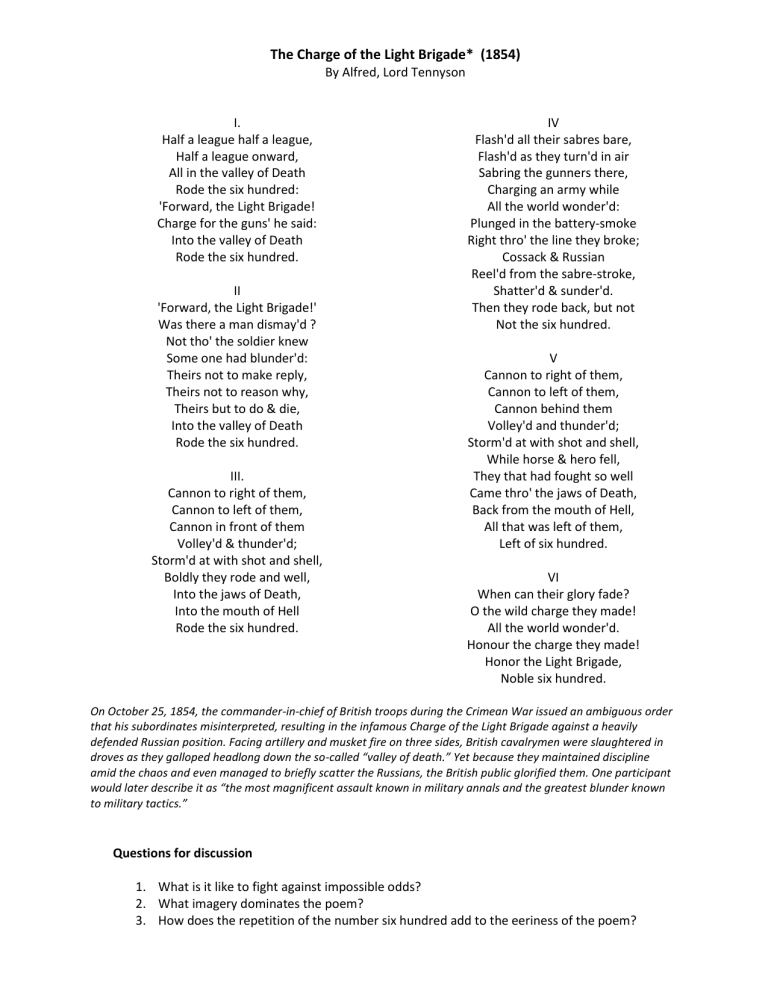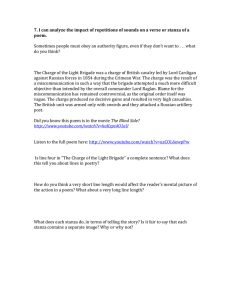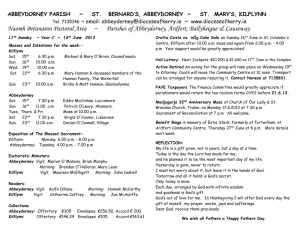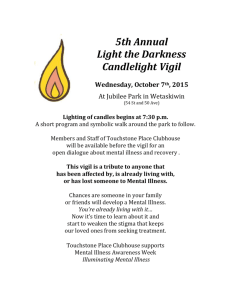
The Charge of the Light Brigade* (1854)
By Alfred, Lord Tennyson
I.
Half a league half a league,
Half a league onward,
All in the valley of Death
Rode the six hundred:
'Forward, the Light Brigade!
Charge for the guns' he said:
Into the valley of Death
IV
Flash'd all their sabres bare,
Flash'd as they turn'd in air
Sabring the gunners there,
Charging an army while
All the world wonder'd:
Plunged in the battery-smoke
Right thro' the line they broke;
Rode the six hundred.
II
'Forward, the Light Brigade!'
Was there a man dismay'd ?
Not tho' the soldier knew
Some one had blunder'd:
Theirs not to make reply,
Theirs not to reason why,
Theirs but to do & die,
Into the valley of Death
Rode the six hundred.
Cossack & Russian
Reel'd from the sabre-stroke,
Shatter'd & sunder'd.
Then they rode back, but not
Not the six hundred.
V
Cannon to right of them,
Cannon to left of them,
Cannon behind them
Volley'd and thunder'd;
Storm'd at with shot and shell,
While horse & hero fell,
III.
Cannon to right of them,
Cannon to left of them,
Cannon in front of them
Volley'd & thunder'd;
Storm'd at with shot and shell,
Boldly they rode and well,
They that had fought so well
Came thro' the jaws of Death,
Back from the mouth of Hell,
All that was left of them,
Left of six hundred.
VI
Into the jaws of Death,
Into the mouth of Hell
Rode the six hundred.
When can their glory fade?
O the wild charge they made!
All the world wonder'd.
Honour the charge they made!
Honor the Light Brigade,
Noble six hundred.
On October 25, 1854, the commander-in-chief of British troops during the Crimean War issued an ambiguous order that his subordinates misinterpreted, resulting in the infamous Charge of the Light Brigade against a heavily defended Russian position. Facing artillery and musket fire on three sides, British cavalrymen were slaughtered in droves as they galloped headlong down the so-called “valley of death.” Yet because they maintained discipline amid the chaos and even managed to briefly scatter the Russians, the British public glorified them. One participant would later describe it as “the most magnificent assault known in military annals and the greatest blunder known to military tactics.”
Questions for discussion
1.
What is it like to fight against impossible odds?
2.
What imagery dominates the poem?
3.
How does the repetition of the number six hundred add to the eeriness of the poem?
Vigil Strange I Kept on the Field One Night (1864)
By Walt Whitman
VIGIL strange I kept on the field one night;
When you my son and my comrade dropt at my side that day,
One look I but gave which your dear eyes return'd with a look I
shall never forget,
One touch of your hand to mine O boy, reach'd up as you lay on the
ground,
Then onward I sped in the battle, the even-contested battle,
Till late in the night reliev'd to the place at last again I made my
way,
Found you in death so cold dear comrade, found your body son of
responding kisses, (never again on earth responding,)
Bared your face in the starlight, curious the scene, cool blew the
moderate night-wind,
Long there and then in vigil I stood, dimly around me the
battlefield spreading,
Vigil wondrous and vigil sweet there in the fragrant silent night,
But not a tear fell, not even a long-drawn sigh, long, long I gazed,
Then on the earth partially reclining sat by your side leaning my
chin in my hands,
Passing sweet hours, immortal and mystic hours with you dearest
comrade- not a tear, not a word,
Vigil of silence, love and death, vigil for you my son and my
soldier,
As onward silently stars aloft, eastward new ones upward stole,
Vigil final for you brave boy, (I could not save you, swift was your
death,
I faithfully loved you and cared for you living, I think we shall
surely meet again,)
Till at latest lingering of the night, indeed just as the dawn
appear'd,
My comrade I wrapt in his blanket, envelop'd well his form,
Folded the blanket well, tucking it carefully over head and
carefully under feet,
And there and then and bathed by the rising sun, my son in his
grave, in his rude-dug grave I deposited,
Ending my vigil strange with that, vigil of night and battle-field
dim,
Vigil for boy of responding kisses, (never again on earth
responding,)
Vigil for comrade swiftly slain, vigil I never forget, how as day
brighten'd,
I rose from the chill ground and folded my soldier well in his
blanket,
And buried him where he fell.
Questions for discussion
1.
Who is the narrator?
2.
What is the overall tone toward the battle?
3.
What is the overall sentiment of the narrator? How do you explain it?
At the Vietnam Memorial (1999)
By George Bilgere
The last time I saw Paul Castle it was printed in gold on the wall above the showers in the boys’ locker room, next to the school record for the mile. I don’t recall his time, but the year was 1968 and I can look across the infield of memory to see him on the track, legs flashing, body bending slightly beyond the pack of runners at his back.
He couldn’t spare a word for me, two years younger, junior varsity, and hardly worth the waste of breath.
He owned the hallways, a cool blonde at his side, and aimed his interests further down the line than we could guess.
Now, reading the name again,
I see us standing in the showers, naked kids beneath his larger, comprehensive force—the ones who trail obscurely, in the wake of the swift, like my shadow on this gleaming wall.
Questions for discussion
1.
Who is the speaker?
2.
When do you realize the significance of the first line of the poem?
3.
What is the speaker’s overwhelming tone toward Paul Castle? Toward war?
4.
Why is the title so significant?
5.
Why does the speaker have a flashback?
In Flanders Fields (1915)
By John McCrae
In Flanders fields the poppies blow
Between the crosses, row on row,
That mark our place, and in the sky,
The larks, still bravely singing, fly,
Scarce heard amid the guns below.
We are the dead; short days ago
We lived, felt dawn, saw sunset glow,
Loved and were loved, and now we lie
In Flanders fields.
Take up our quarrel with the foe!
To you from failing hands we throw
The torch; be yours to hold it high!
If ye break faith with us who die
We shall not sleep, though poppies grow
In Flanders fields.
Questions for discussion
1.
Who is the speaker?
2.
What is the major contrast in the poem?
3.
What is the overwhelming tone of the poem?
4.


